Archive for the 'hope' Category
Saturday, November 29th, 2014
Just south of the Lions Park out of Manilla, NSW, someone has painted a bearded face on a tree.

It’s the first of eight such faces (that we know of), all taking advantage of the contours of the burls. The second one, named Toby by my nephew though it looks more like Gromit, is my favorite.
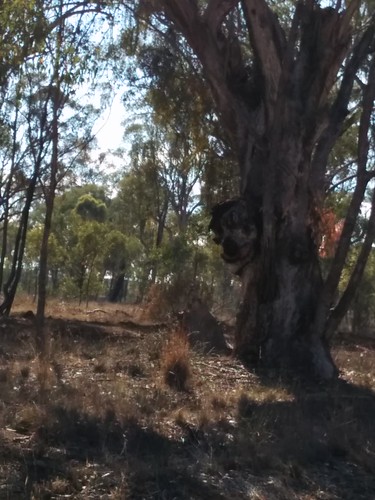
Before this trip to Barraba I tried to describe to myself the difference between my father’s town of a thousand souls and my own beloved city of San Francisco, population 800k but arguably way fewer souls. There are the giveaway jokes: Barraba used to have an asbestos mine, and just missed out on a new abattoir. In New York, everyone’s writing a novel; in LA, they’re working on a screenplay; in SF, they’re building an app.
That second joke gave me a clue. I love the density of narrative in cities, the plaques on London’s Georgian houses, the ghost of the railroad through the Mission, the undergrounded waterways. I thought for a while that Barraba is relatively empty of stories, until I remembered with a stab of sorrow that it used to be full of them, but that my ancestors tried to kill all the people that knew them.
Barraba is in Gamilaraay country. One story I do know is that of the Myall Creek Massacre.
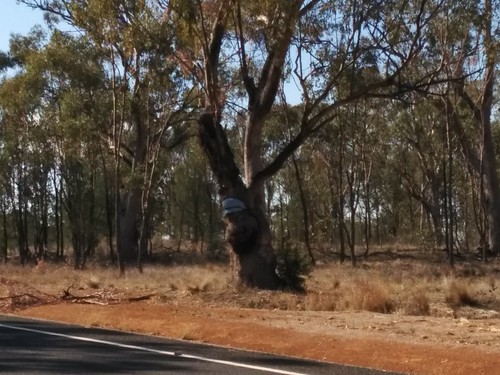
I’ve spent enough time in Barraba to have made good friends and learned a little of their stories. Pam has a great one about her husband Ted riding across a flooded creek to be with her when she had a baby; she remembers the sight of him galloping up to the house, surrounded by a halo of flies. Jane’s family owns a property called Wiry, which I had assumed was an Aboriginal name. Turns out it was part of the land grants to returned soliders, and because it’s a relatively hilly and inaccessible property, the recipient grumbled “Wouldn’t it root ya.” More giveaway jokes.
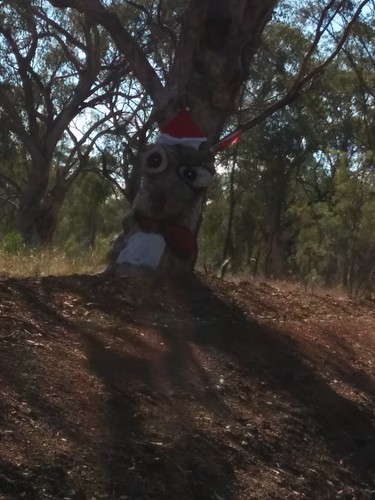
Jane asked me flat out what all seven of you remaining blog readers have probably been wondering: “Are you neglecting the blog because the stuff you’re thinking about is too intense and sad?” Yup. But something really terrific has happened. A researcher has become interested in Dad’s blog, which was critical to his diagnosis of semantic dementia. We have 17 years’ worth of his written records as his condition developed – more than five times the length of the next longest case study. Joanna believes we can extract psycholinguistic markers of the changes to his vocabulary that may help scientists to develop more sensitive diagnostic tests.
As part of collating the material for Joanna, I read a few of Dad’s earliest blog entries. He had a decent line in giveaway jokes of his own:
Tue 10 Feb 1998
Got away late from Sydney. Lasted on the road until 6 o’clock at which time we found ourselves in Gunning, between Goulburn and Gundagai.
Gunning is a town of a thousand souls and very few outstanding features.
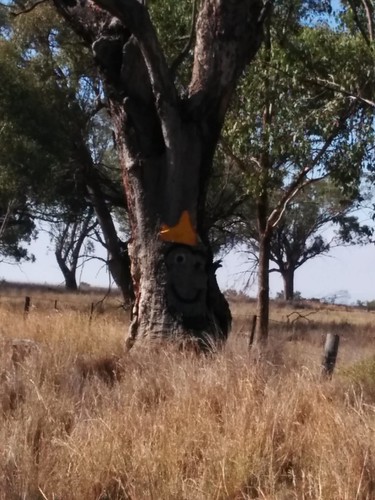
Death is the eater of meaning. It swallows up whole universes, erases stories from the landscape.
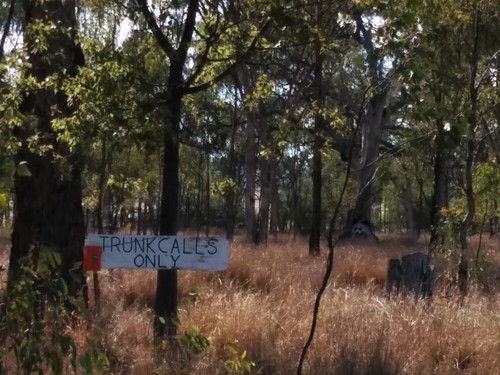
The work of grief is to make sense of loss. We have to make new narratives to mark the place of those that are gone.
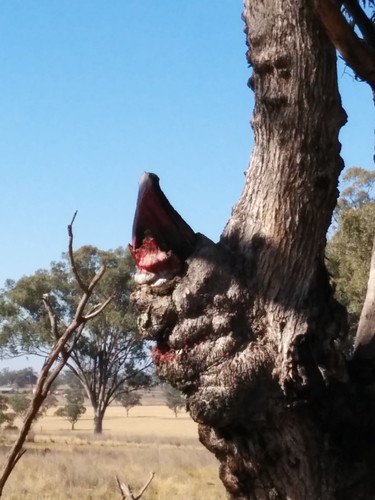
We have to find the faces in the forest.
Posted in adventure time, australia, bookmaggot, grief, history, hope, mindfulness, politics, san francisco, sanity, words | Comments Off on the forest of faces
Sunday, October 19th, 2014
So we went to see what all the fuss was about.
The first night, we stayed at the Wawona.
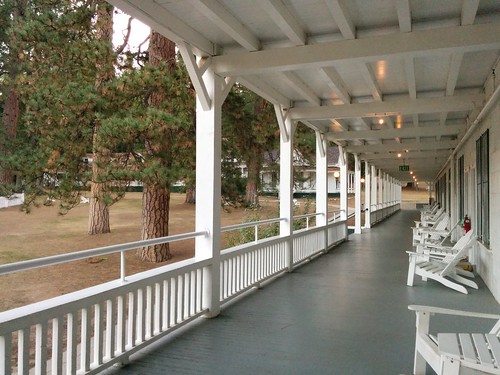
The absolute highlight of which was this handsome fellow vogueing in the shrubbery.
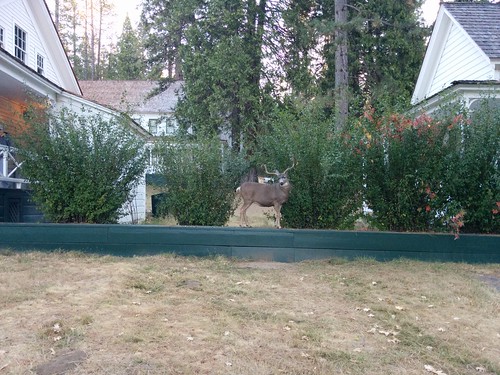
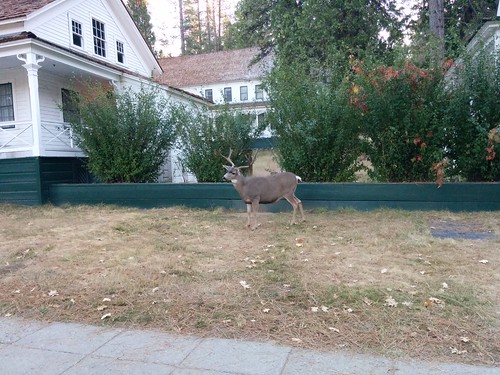
Next morning, brunch at the Ahwahnee.
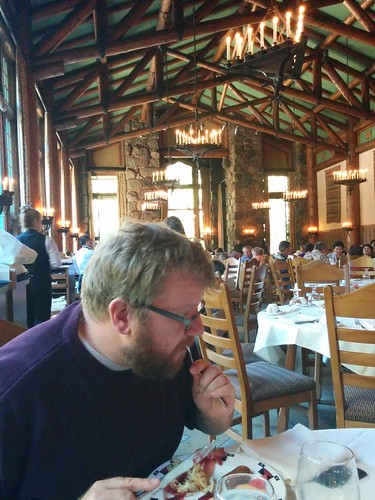
Then El Capitan, or as I like to call him, Steve.
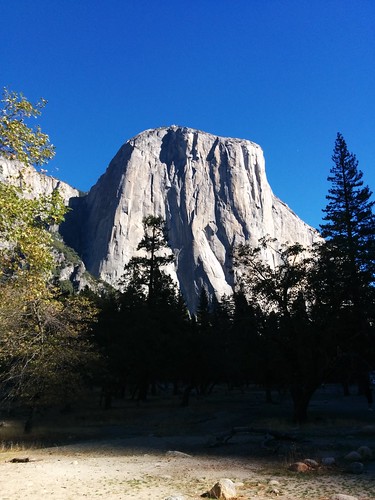
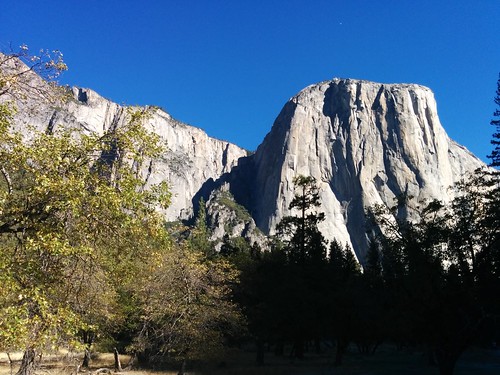
We stormed around the Merced River for a bit, which was painfully scenic.
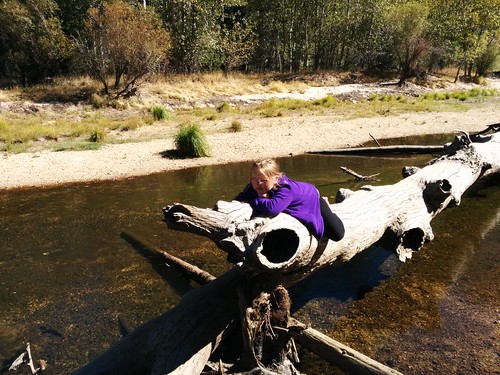
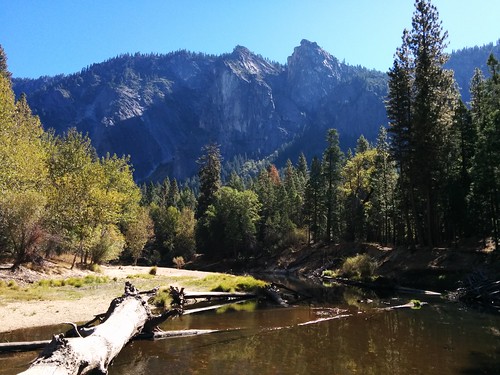
Then I don’t even know, a meadow and some rocks and stuff.
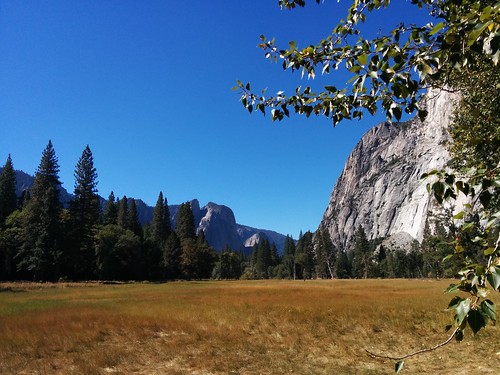
A waterfall of excruciating beauty.
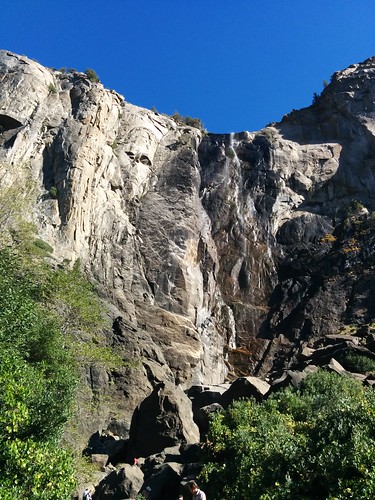
Tea back at the Ahwahnee with a mama mule deer and her twin fawns.
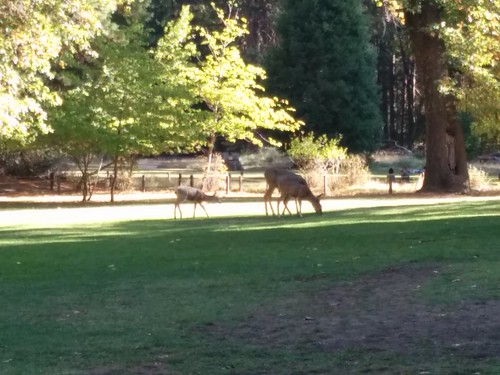
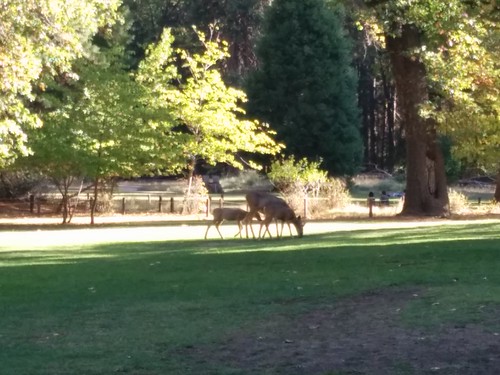
Pinot grigio on our balcony at the Yosemite Lodge, with our own personal mountain.
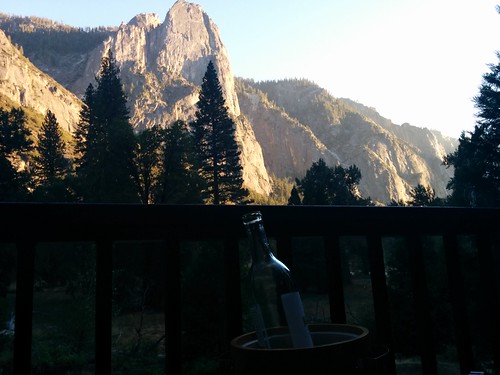
And our own personal sunset.
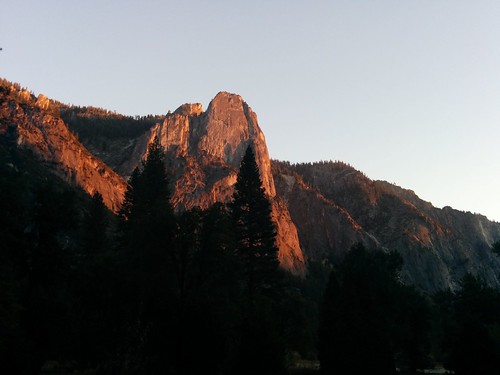
Glacier Point on the way home, for one last overdose on grandeur.
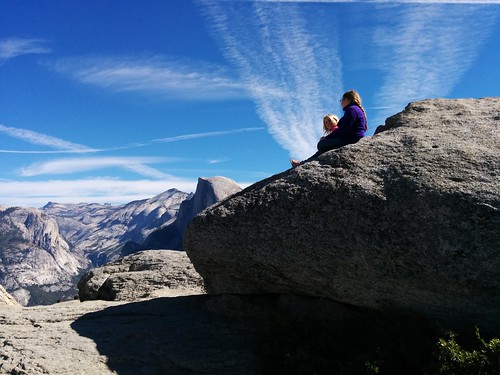
Buh-bye rocks and stuff!
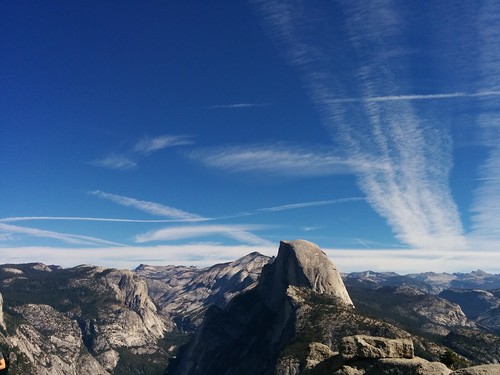
I guess I would characterize all the fuss as “not wholly unjustified”.
Posted in adventure time, children, happiness, hope, i love the whole world, little gorgeous things, mindfulness | Comments Off on adventure time 6: yosemite valley
Sunday, October 5th, 2014
We chose the most beautiful morning imaginable.
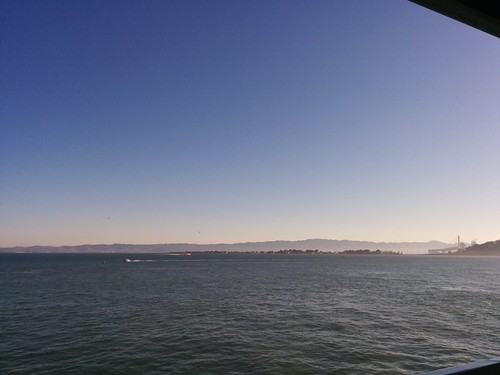
Even @karlthefog had come out to Alcatraz.

The flock of kites in prison made me think of my Dad.
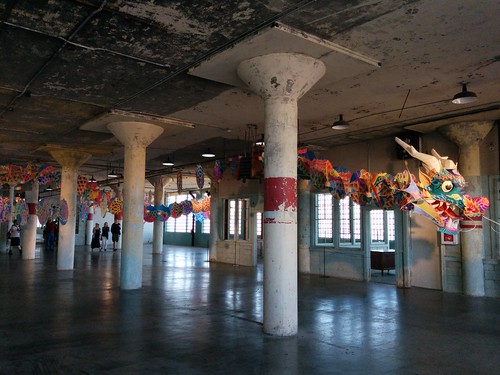
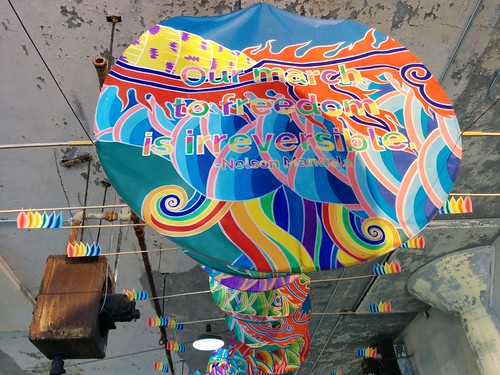
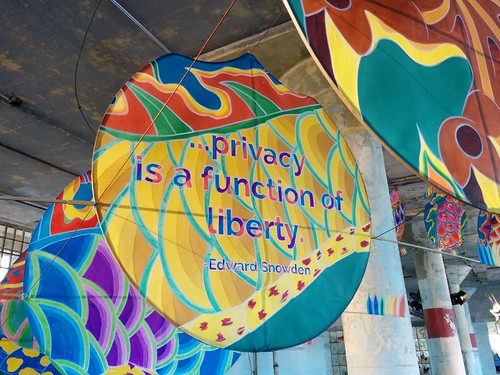
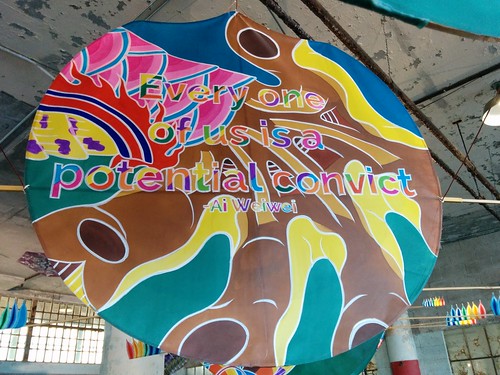
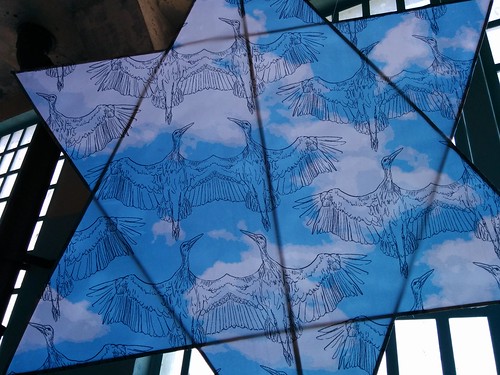
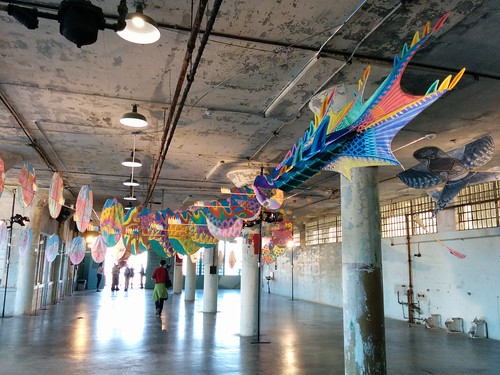
The Lego portraits made me think of playing with my brother as children.
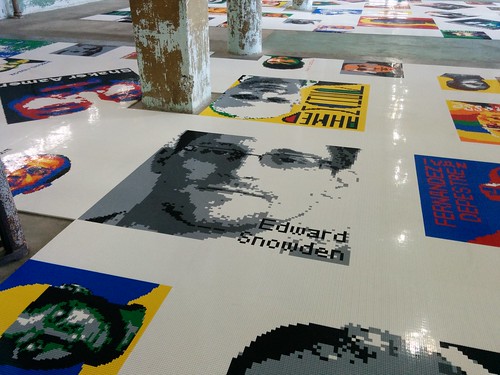
Each portrait is of a prisoner of conscience.
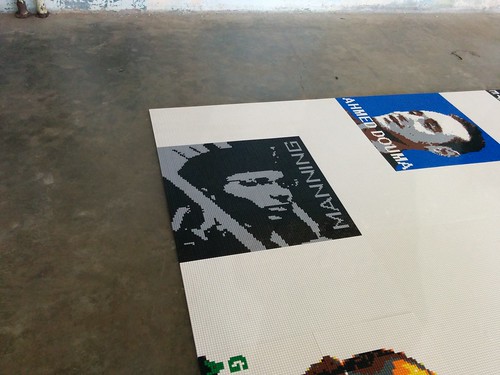
I was ashamed at how few of the names I knew.
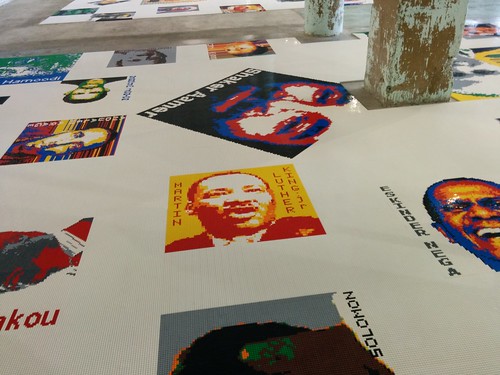
It’s a powerfully angry and compassionate body of work.
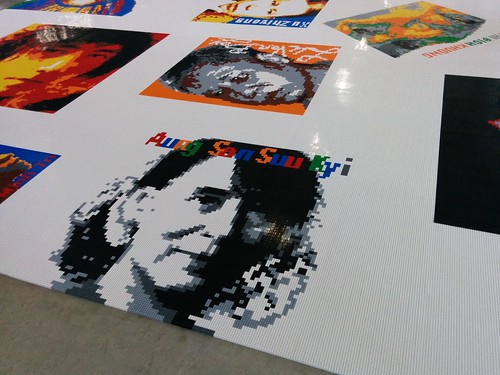
We are all one family.
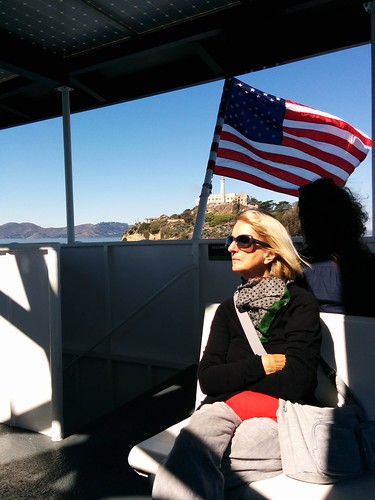
Posted in adventure time, history, hope, little gorgeous things, meta, mindfulness, politics, san francisco, worldchanging | Comments Off on adventure time 5: ai weiwei on alcatraz
Monday, January 13th, 2014
I woke at dawn, beset by bird life: galahs, cockatoos, King parrots, rainbow lorikeets, magpies and currawongs all yelling their fool heads off just outside my window.
I’m staying with Jane. She and Darcy and the twins live in one of the lovely old Federation brick houses on the hill above the river. Her spare room is vast, with a high ceiling and a glowing wooden floor and nothing in it but a shelf and a bed, and it opens onto an east-facing verandah. It is so exactly the quiet refuge that I need that when I saw it I was struck dumb. No idea how I can ever thank Jane and her family.
Quiet, that is, except at dawn, with the birds.
I sat on the verandah and glared at the birds and called Jeremy as the sun rose. When Darcy and Jane came out for coffee their dog Chicken came too. She’s a Scottish staghound but she looks a little like the Anatolian shepherds I saw in Turkey and a little like a wolf. She’s bigger than I am. I cleared off the sofa I was sitting on and Chicken kissed me and put her arms around me and her hairy cheek against my face.
“She was bred as a pig dog,” Jane explained. “She could track the pigs and hold the pigs at bay, but she just didn’t want to kill them. They even gave her some piglets -”
“To tear apart?”
“Yeah that was the idea, but she played with them instead. When I heard that, I knew she was the dog for me.”
How do people get through this without animals? Sarah picked me up and I went to Henry Street to snuggle with the creatures there: four dogs (Jake, Peppa, Jess and Toby) and three cats (Oskie, Missy, Tiz). I always thought it would be me with the menagerie.
When we got to the hospital Mum demanded mahjongg. Big had forgotten the rules but not so much that he didn’t win the third game, after Sarah won the first and Mum won the second.
Posted in australia, grief, hope, i love the whole world, little gorgeous things | Comments Off on beastly
Saturday, July 27th, 2013
I kinda wanna copy out the whole first chapter, but will restrain myself somehow –
As I grew up, everything started getting grey and dull. I could still remember the amazing intensity of the world I’d lived in as a child, but I thought the dulling of perception was an inevitable consequence of age – just as the lens of the eye is bound gradually to dim. I didn’t understand that clarity is in the mind.
On Gifted And Talented Education (GATE) as the gateway drug to being a massive douche:
I tried to resist my schooling, but I accepted the idea that my intelligence was the most important part of me. I tried to be clever in everything I did.
On school as trauma:
My ‘failure’ was a survival tactic, and without it I would probably never have worked my way out of the trap that my education had set for me. I would have ended up with a lot more of my consciousness blocked off from me than now.
On the importance of writing about something other than what one has read – ironically, the exact opposite of what I am doing here:
I had expected that there’d be a very gentle gradation from awful to excellent, and that I’d be involved in a lot of heart-searching. Almost all were total failures – they couldn’t have been put on in the village hall for the author’s friends. It wasn’t a matter of lack of talent, but of miseducation. The authors of the pseudo-plays assumed that writing should be based on other writing, not on life.
On aging disgracefully:
I began to think of children not as immature adults, but of adults as atrophied children.
Reminds me of something – what was it – oh right –
Not in entire forgetfulness,
And not in utter nakedness,
But trailing clouds of glory do we come
From God, who is our home:
Heaven lies about us in our infancy!
Shades of the prison-house begin to close
Upon the growing Boy…
Posted in hope, the empty space, words, worldchanging | Comments Off on impro, by keith johnstone
Monday, July 1st, 2013
Oh blog forgive me for neglecting you. There are so many stories I have wanted to tell you, like when I was driving back from Salome’s horse show and asked Najah not to eat his hot dog with his mouth wide open, and he said through a mouthful of hot dog: “MY PAPI SAID I COULD.” (Jack: is this true?)
And the time I realized we had left Claire’s wushu sword at Front Porch, so I went down to collect it and one of the servers was out on the sidewalk with it, getting his Errol Flynn on. (Later as Claire and I were walking home, a police officer called me over, asking grimly: “Is that a real sword?” It’s not, it bends, so I held it up and wiggled it in the air for him.)
But the other lede I have been burying lo these many months is that I just left my job of thirteen years, a job I loved at a company I still adore. I don’t blog about work here because I don’t want any of my employers scarred by my anarchism and poo jokes, but that was a hell of a gig and a huge episode in my life. Leaving it was, in the end, very melancholy.
Here’s to the next thing, which has the potential to be just as amazing.
Posted in first world problems, fulishness, hope, meta, mindfulness | Comments Off on my year of letting go has turned out to be no joke
Tuesday, June 25th, 2013
The brilliant Sumana made this exact point to me two weeks ago:
Butler creates woman protagonists (such as Lilith in the Xenogenesis trilogy) who are seen as traitors for consorting with their enemies or oppressors. Her stories have the capacity to make the so-called traitor’s motivations understandable, often showing a willingness to negotiate as the product of a stubborn sense of hope for the future that can take the form of a commitment to nurturing a new mixed race.
From the book I cannot put down, Ann Cvetkovich’s Depression: A Public Feeling. Cvetkovich has also introduced me to Jacqui Alexander’s phrase “radical self-possession,” an idea that instantly caught fire and ran down every blood vessel and nerve in my body like music or healing grace. I asked myself what radical self-possession would look like, and Future Rach (who drops by occasionally to give me hints) said:
“Like me.”
Posted in grief, happiness, history, hope, mindfulness, politics, sanity, women are human, worldchanging | Comments Off on complicity
Sunday, May 12th, 2013
There are only two in the USA: the other is in Tennessee. This one was founded by Pat Derby, an Englishwoman descended from Shelley who found herself in Hollywood training cats, bears and elephants for shows like Lassie and Daktari. She hated the violence and cruelty of the industry and exposed it in a pretty wonderful, if bleak, book cowritten by Peter S. Beagle, who also wrote The Last Unicorn. She died in February.
The sanctuary is only open twice a year and you have to buy tickets in advance. It’s up in the Sierra foothills and it was a scorchingly hot day. Six hundred people came. I grumbled about the heat and having to wait in line for a shuttle, and then the shuttle came and we were taken to a picnic area where there were two Asian elephants to the left of us and three African elephants to the right. Gypsy, Wanda, Mara, Maggie and Lulu.
There are massive steel fences around their enclosure but the enclosures are vast – acres upon acres. That they wanted to visit with us at all is astounding to me. We were kept at a safe distance, about twenty feet, but we were in the presence of elephants, and this is an ungainsayable thing. I’ve seen elephants before but I don’t think I’ve ever seen happy elephants before. We were there for their entertainment as much as the reverse. They made eye contact.
I believe of them now, as I believe of whales and octopus, that they are sentient. How they must suffer when they are caged or in chains.
Maggie, one of the African elephants, lived in an Alaskan zoo with only an Asian elephant for company. The two have different vocalizations, but Maggie speaks both languages. Gypsy and Wanda came to the sanctuary at different times from different places but are now inseparable. Archival footage of circuses revealed that they had been friends before and had remembered one another for decades. Lulu, rescued from the San Francisco zoo, was the most reticent of the females. She wanted to be near Maggie and Mara but she didn’t particularly care for us. Up on Bull Mountain we saw Nicholas and Prince; Prince also prefers to keep away from humans.
But Nicholas swam for us, and dug a log up from the bottom of his lake. Another animal again in water, his bony head like a hippo’s, the water pouring off his gleaming skin. Graceful and at peace.
It was everything I love most passionately about California: the dry hills, the circling raptors, the ridiculous mule deer, and the people who pour out their lives trying to fight injustice and make safe spaces and be kind.
Posted in hope, i love the whole world, sanity, worldchanging | Comments Off on elephant sanctuary
Monday, April 8th, 2013
Kirsty is a force of nature. I’ve been meaning to go up to Edinburgh since Alex and Ioanna moved there from Ireland years ago, but the details eluded me. When I mentioned it in passing to Kirsty the whole thing was organized in what seemed like sixty seconds. I flew in early for the London conference I come to every April, and Kirsty and I caught the train to Edinburgh.
The journey was gorgeous and fascinating. “Green and pleasant land,” I tweeted as we left London, then “dark Satanic Mills!” as we crossed the midlands and I saw four huge power stations (Eggborough and friends maybe?) belching steam into an otherwise cloudless sky. As we sped to Scotland we saw Durham Cathedral, the Angel of the North (which I have loved since first seeing pictures of it and which came as a completely unexpected treat), beautiful steampunk Newcastle, Lindisfarne like something from a Miyazaki film or happy dream, the sun sparkling on the mouth of the Tweed at Berwick, and the looming bulk of the Torness Nuclear Plant.
Motion sickness got to me after a while. (The hangover from the night before probably didn’t help. That was Grant’s fault.) I thought I was going to hurl all over Waverley Station. I took my first steps in Scotland trying not to puke and telling myself “Don’t mention their accents don’t mention their accents,” so of course when I called Alex I blurted out “you sound very Irish.” I guess at least I didn’t vomit?
When I had recovered myself somewhat Kirsty and I had fun storming Edinburgh castle, and when we finally did make it to Alex’s house the awkwardness of nine years’ separation did not survive its first encounter with a pretty decent Sangiovese I’d brought out from California. Alex made osso buco. It was delicious. Ioanna is delightful and their daughter Lena is so best. We figured out how to fix capitalism but I didn’t write it down, so that’s a pity.
Posted in children, england, first world problems, food, friends, fulishness, grief, happiness, hope, ireland, worldchanging | Comments Off on there was something about anarchy, i remember that much
Tuesday, March 26th, 2013
The art of imperfect repair.
Posted in hope, mindfulness | Comments Off on kintsugi
Wednesday, March 6th, 2013
As part of ongoing efforts to live a more makerly, human life, I resolved to make a thing a month this year. Not a vasty thing; something small and manageable. In January, I cross-stitched a little constellation embroidery for each of the girls. In February I hand-wrote a letter to a dear friend.
This month I will try out the Kintsugi repair kit that J gave me for my birthday. It repairs ceramics with a mixture of glue and gold dust. I will test it on some of our table china, and when my technique is alright, I will fix a chip in the beloved bowl I brought home from Avanos, in Turkey.
When I first read about Kintsugi, I cried. The chance to be more beautiful in the broken places feels like a gift, like grace.
Posted in fulishness, happiness, hope, little gorgeous things, mindfulness, nerdcore marriage, sanity, worldchanging | Comments Off on a thing a month
Friday, March 1st, 2013
I’ve been thinking, for complicated reasons, of things I have that are irreplaceable: the rosettes I won on Alfie and Noah; the Onkaparinga blanket Sarah gave me to take with me to Ireland, and which is wrapped around my knees as I type; the ring my father-in-law gave me; the bronze horse on my hall table, which was a present from my mum. Big Ted, Alain’s bear when he was a child, who is beaming fondly down at me from his shelf.
For that matter, the bears my mother gave to Claire and Julia: Topaz and Bess. Topaz spent three days lost behind a shelf at Claire’s pre-school, and another two days in the back seat of a taxi in New York. Our miracle boy.
Posted in grief, happiness, hope, little gorgeous things | Comments Off on heirs loom
Tuesday, January 22nd, 2013
Nightmares again; this time trying to explain to Cameron why I am no longer a Christian. Or rather, trying to fathom why he is, after all that has happened. Confusion and incomprehension.
It was MLK Day, which I had off but Jeremy did not. I took the girls ice skating. We met Gilbert and Heather and Ada and Heath and Max and Noemi and Jim there, and also – surprise! – Heike and Kira, who I had not seen since Kira finished her lessons at Petit Baleen. It was good to see them! Heike and I took Julia skating between us, and then Julia got brave and skated with just me, and even on her own. Claire skated with Ada and struck out alone as well.
I was very wobbly to begin with, but I kept my chin up and looked where I was going and waited for my muscle memory to kick in again. I have a riding mantra at the moment – I correct part of my body then try to set and forget it, saying to myself “This is how we do it now.” My big fault is always overthinking and overcorrecting, so I’m trying to just fix one thing at a time and then relax. By the end I was skating around all right. I couldn’t turn and skate backwards, but considering I haven’t skated at all since the eighties, it wasn’t too bad.
We visited the MLK fountain in honor of the day, then went home to wait for a tow truck to come and get Hedwig. (Not starting again. Gary thinks the new starter engine is faulty.) I made Claire watch the inaugural address with me, and when Obama got to “Seneca Falls, and Selma, and Stonewall” – tribute to the coalition that elected him, atlas of the America I love and hope to live up to – she said:
“This is why I don’t want to be a grownup. You’re always crying when people are just saying words.”
Posted in grief, hope, mindfulness, politics, san francisco | Comments Off on this is how we do it now
Monday, January 7th, 2013
Me: Dad told us about how when he was seventeen he built a radio controlled boat from a kit and sailed it in the pond at Kew Gardens.
Big: I remember that boat.
Me: You do?
Big: It was in the lawnlocker.
Me: Oh my God. I think I remember it too. About yea big?
Big: Yeah.
Me: I can see the curve of it. And smell what the lawnlocker smelled like. I would never have remembered that on my own, not in a million years.
Posted in australia, history, hope | Comments Off on family as bearing witness
Sunday, January 6th, 2013
We had another dinner at the Playhouse last night for the remnant population: Mum, Dad, the Marretts and the Fitzhardinges. Haddon made chicken in a mushroom sauce with broccoli and perfect roast potatoes like Mum used to make – that is, parboiled then deep fried, so that the insides were creamy and the outsides were golden crisp.
Conversation was flagging until I realized it was the eleventh anniversary of another Feast of the Epiphany, also known as the Worst Dinner Party I Ever Threw, Oh My God, Now That I Think About It That Story Doesn’t Reflect Well On Me, At All. I made my way through a bottle of Oyster Bay Marlborough sav blanc and tried to tell the sorry tale. I told it very badly, but it encouraged everyone else to tell stories of terrible parties, and then to share memories of great ones, like Sarah’s 21st, at which Dad skipped around the Bluegum Crescent house for hours, filling peoples’ glasses of champagne.
And so just for a little while, last night was one of our great parties, too.
Posted in australia, happiness, hope | Comments Off on the feast of the epiphany
Friday, December 21st, 2012
I didn’t have a fantastic year in reading, to be honest – I think the Kindle threw me off and that my patterns of acquisition and consumption have yet to rebalance. Here are some books I read that I liked very much:
Nonfiction
Fiction
I guess it wasn’t such a terrible year in reading at that. There are two books, though, that I want to push into your hands in an overbearing yet adorkable bookseller-or-librarian-ish way: Constellation Games and Fair Play. Please read these books. They are very great.
It feels like cheating to recommend Leonard’s book when I have known and loved Leonard for ten years, but I must have read Constellation Games four times this year and gotten something more out of it each time. It’s a first contact novel and an existential love story and it did more than any other single argument to make me believe games are an important art form, but it’s also incredibly funny and moving and Curic the two-souled purple otter is my new favourite fictional character. For its part, Fair Play is about two seventysomething women living at opposite ends of an attic having conversations about pictures and books. Yes, Tove Jansson is the Moomin person. This book is based in part on her life with her wife.
Why these two? Because I am 41 years old. Because I love animals and nature and am living through a mass extinction I helped cause. Because I am a pacifist living in America, and a progressive anarchist who spent my teens as an evangelical Christian assuming I would die in a nuclear holocaust. Because for my first quarter-century I was much troubled by despair. It’s only in the last decade or two that I have had the luxury of time to tinker with my diet and my neurochemistry and my cognitive behavior to try to make a habit of hope and not horror. Because it’s the Northern winter solstice and that means all the festivals of lights, all the songs and candles in the long darkness, and what all the festivals mean is that physics is real: this will be the longest night of the year, and that tomorrow at dawn one shaft of sun will light up the corbel-vaulted room inside Newgrange [or insert your neolithic solar calendar of choice]. And then everything will start to feel a little bit better. It doesn’t stay dark. As Bill Bryson says, life wants to be. Life doesn’t want to be much. From time to time, life goes extinct. Life goes on.
Constellation Games and Fair Play are quite literally stories of friendship and hope, not in the movie trailer way that makes you wince but in a clear-eyed, fearless way that is able to talk about betrayal and jealousy and irreconcilable differences and the cold empty vastness of space. They are both, in fact, books about how to be a friend, and how to be hopeful. We are chimpanzees with doomsday weapons, adrift on a rock in an immense dark void. We have to take care of each other and we have to believe that things can change for the better. So, you know. RTFM.
Posted in bookmaggot, friends, fulishness, hope, mindfulness, sanity, words, worldchanging | Comments Off on books of the year: stories of friendship and hope
Thursday, November 8th, 2012
Posted in happiness, hope | Comments Off on the shorter this week in rachland
Thursday, November 8th, 2012
Posted in happiness, history, hope, politics, san francisco | Comments Off on my unreasonably good mood, let me show you it
Saturday, September 22nd, 2012
Last night Claire and I went through her favourite cookbook and picked out the gnocchi, lasagne and baked peach recipes for her to make. Today after wushu we went to Lucca, the awesome Italian place on Valencia and 22nd, for pasta flour, amaretti and parmesan. (Some dulce de leche and tuna in olive oil snuck into my bag as well.) At the farmer’s market we found stone fruit, onions, spring onions, cilantro, kale, potatoes and Colin, who always has the best neighborhood gossip. At Good Life we bought meat, carrots and lemons. Right now I am baking paleo quiche (savory custard tarts in pancetta crusts) and the girls are about to make lemonade to sell at the street party around the corner.
It’s so rare that I find myself being more or less the mother I’d hoped I would be…
Posted in children, food, happiness, hope, i love the whole world, little gorgeous things, mindfulness, san francisco, worldchanging | Comments Off on a memorable fancy
Tuesday, July 3rd, 2012
I read Leonard’s book and identified completely with his crunchy Granola post-scarcity, zero-coercion aliens and their fluid overlays for getting things done. I said to Danny: “I think I may be becoming an anarchist,” and Danny, because he is perfect, ran off to find a pamphlet to push into my willing hands.
The pamphlet is perfect. It is Kevin Carson’s “Resilient Communities: Society After State Capitalism.” The first essay talks about local economies, including farmers’ markets and barter systems. The second essay talks about the historical roots of such local economies: Pompeiian villas and labor cooperatives.
I started to realize that I have been a practising anarchist for quite some time. Consider! I like: credit unions, hackerspaces, Mechanics’ Institutes, small-press books, community gardens and California commune and other DIY architecture. I dislike: large banks, surveillance, inequality, institutional racism and sexism and the police state.
I’ve been thinking a lot about money, both professionally and politically. Despite the overwhelming centrality of venture capital to the technology industry, my standard (good) advice to engineer-entrepreneurs is: “bootstrap. Run off revenues. Never sign a term sheet.” The more I read Keynes, the less I think of money as stored value. Money is something else.
This is important. Carson brings up Schumpeter, who distinguishes between “the money theory of credit” and “the credit theory of money.” We live in a world ruled by the money theory of credit. That is, when you borrow money from a bank or VC, it is assumed that loan comes out of a pile of cash placed in the bank or fund by account holders or limited partners. The credit – the loan or investment – is funded by the money, which exists. Right?
Wrong. Schumpeter’s credit theory of money turns that logic on its head. “It is much more realistic to say that the banks ‘create credit…’ than to say that they lend the deposits that have been entrusted to them.” What does it mean to create credit? Think about what “credit” actually means. It is a measure of trust in a relationship. Money flows from the social contract.
That’s why Keynesianism worked, especially after WW2: people were too afraid of the consequences of not trusting one another, and so they credited one another with enough goodwill to build the Interstate Highway System and the National Health. It worked right up until Reagan and Thatcher made hate fashionable again.
Carson takes up the argument:
“Capital” is a term for a right of property in organizing and disposing of this present labor. The same basic cooperative functions could be carried out just as easily by the workers themselves, through mutual credit. Under the present system, the capitalist monopolizes those cooperative functions, and thus appropriates the productivity gains from the social division of labor.”
Far from “storing” “value” in the form of “money”, banks and venture capitalists subtract credit from the social contract by adding (mostly worthless) extra layers of abstraction between individual actors. The mortgage crisis began with liar loans and banks selling off mortgages: anything to distance themselves from the consequences of what they had done.
Vast wealth is hoarded money, stagnant credit. It is more disgusting and a bigger threat to mental and public health and aesthetics than the hoarding of physical goods.
So that’s where I am. Still supporting Obama because of Affordable Care, but adamantly opposed to extraordinary rendition and detention without trial. Not exactly soured on electoral politics, but empowered to say A Plague On Both Your Houses! because finally able to imagine an alternative: a society in which we help each other, listen to one another and share what we have. In short, I am an anarchist.
Posted in friends, hope, politics, ranty, worldchanging | Comments Off on i am an anarchist




































